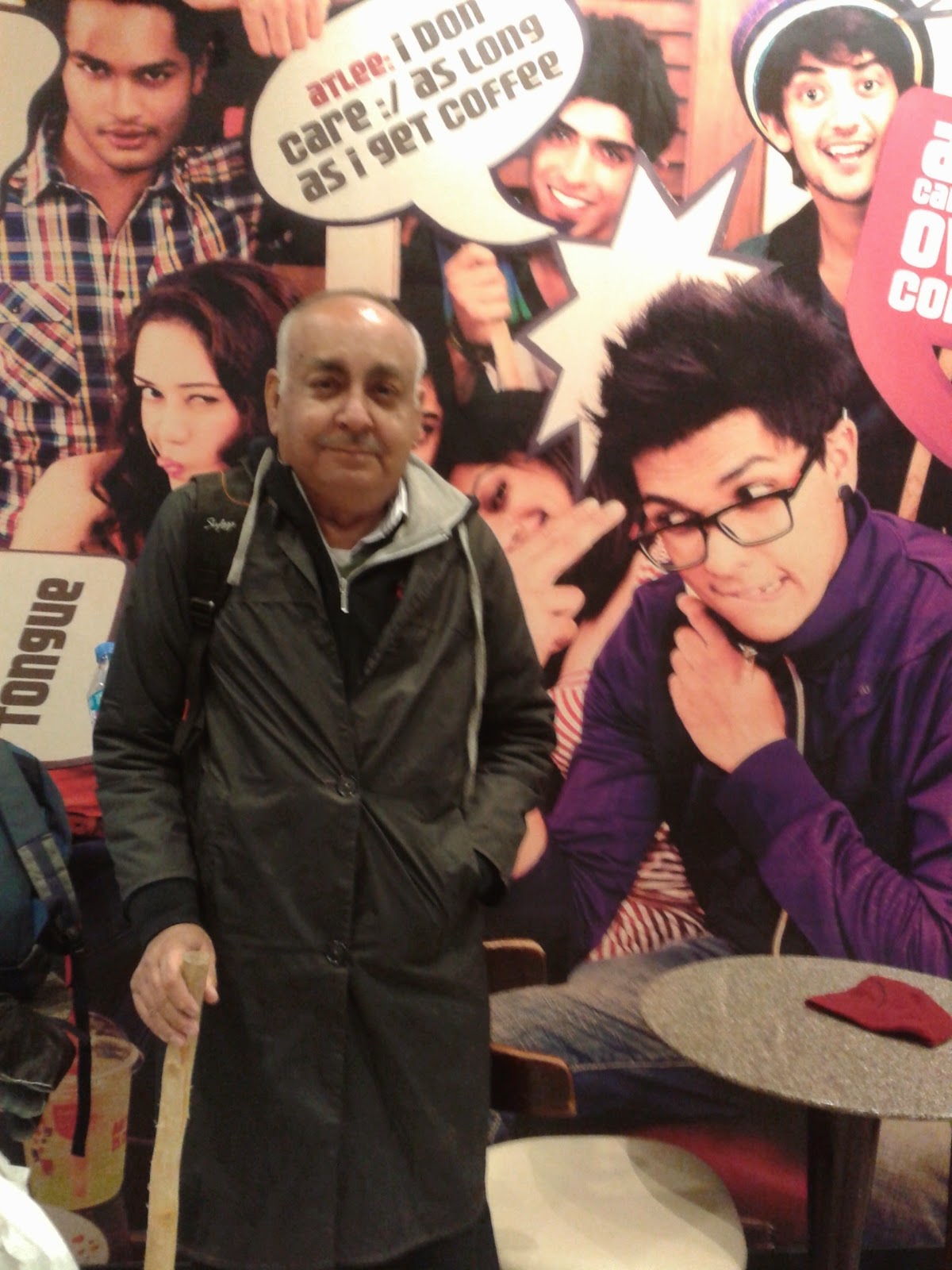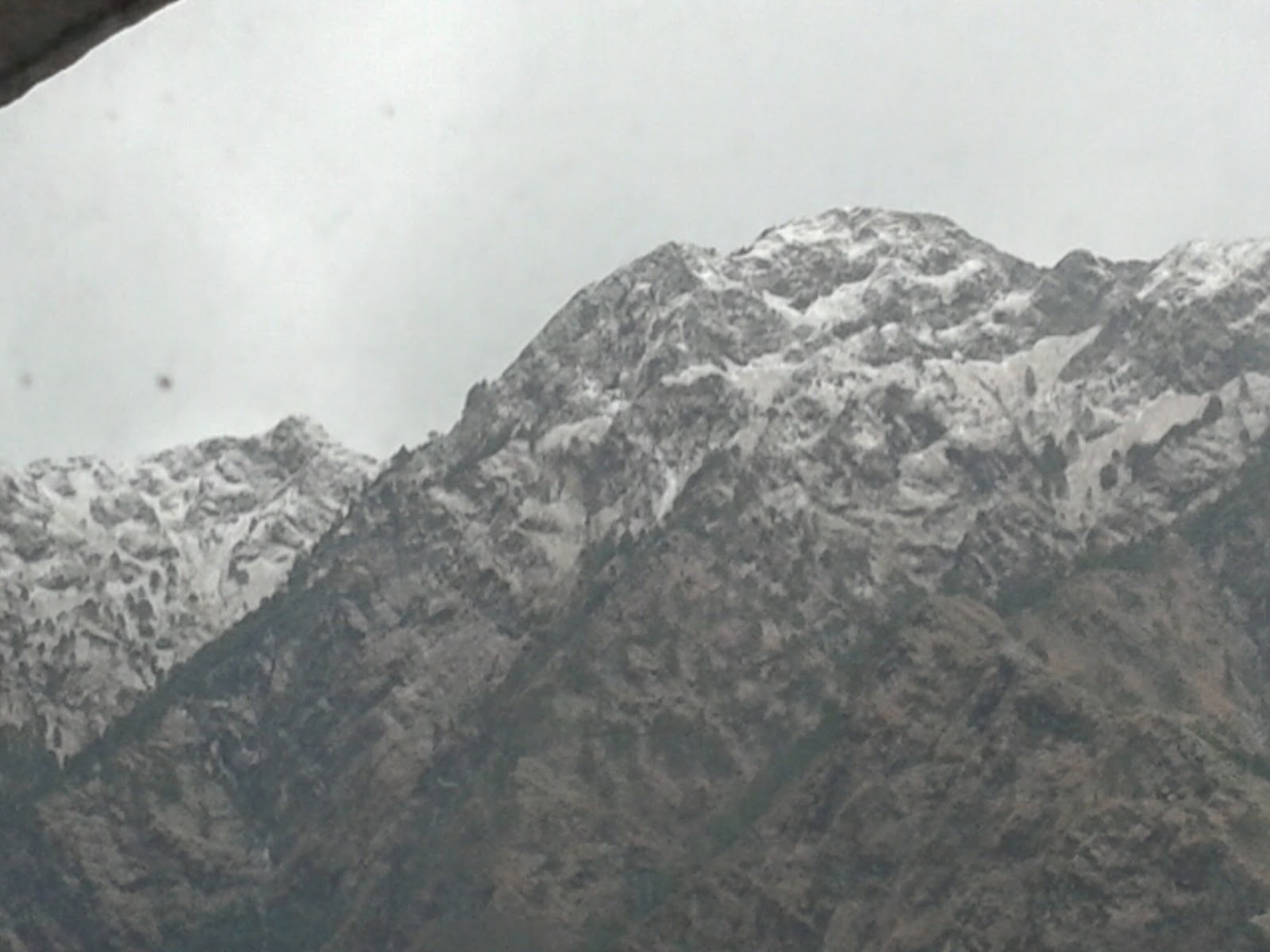(1969 batch of Shyamlal College Evening. Mr. K.S.Dalpatia is fourth from left)
Krishan Singh Dalpatia (1938-2014)
I lost a very dear friend last month. He was evidently not
the first one to leave this world; nor would be the last since God’s ways are
only known to Him. But after he left for his heavenly abode, I continue to feel
his absence every day. The time I spent in his company, and much of it arguing
since we rarely agreed, continues to haunt me. He was surely one the like of
whom one rarely meets in life.
I met him first in 1971 when I began working. He was quite
senior to me in years and experience and relished teaching Hindi to overflowing
classes. He was known for his loud raucous laughter, which began to be heard
from the college gate itself. A colleague likened him to good old B&W
televisions, which emitted sound first & the picture would appear several
minutes later. He was equally loud and assertive when expressing his
preferences for people. I did not like the way he publically supported some people
without applying his mind. We argued about it over a cup of tea outside Old
Delhi Railway Station. As I let loose a barrage of questions at him for being
so immature & trusting, he weathered it smilingly. In the mean time, a poor
man approached us and begged for a meal. Before I could wave him away, Dalpatia
sahib ignored me, turned his head & told the dhaba owner to serve him a meal. I got up indignantly but he was
cool and replied disarmingly, “Okay! I shall not do it again.”
“Are you free on Sunday morning?” he once asked me casually.
Being a late riser, I was cautious and asked for more information. The National
Service Scheme (NSS) unit of the college was organizing an event in Seelampur
and he wanted me to attend. It would not take long and we will also serve you
tea later. I was not very enthusiastic but gave in. When I reached the colony,
I found a huge heap of garbage, rotting for days and emitting a very foul smell
at the entrance itself. Mr. Dalpatia was at the top of it and feverishly
shoveling it away along with volunteers. This happened several decades before
our PM launched a ‘Swachta abhiyan”. I was equally aghast when I spotted his
son, who must have been below ten, following his footsteps. It was really very nauseating.
I protested why he was exposing his small son to such unhygienic conditions. He
smilingly responded, “Let him know this face of India too.” I was also taken to
see the results of a plantation drive our NSS unit had undertaken and a road built
with villagers’ participation in rural areas. When funds from Delhi School of
Social Work dried up, he organized a fete in college grounds where he put a
bottle of beer among prizes to be won by throwing a ring. It nearly cost him
his job!
Mr. Dalpatia had a keen interest in politics. His opponents,
and there was no dearth of them, put labels of different parties and their
groups on him. Some claimed that he was an RSS man but I found that he had
friends across the political spectrum, including the Left. There were some who
claimed that, post- Emergency, he was sympathetic to Janata Party leaders. This
could be a reaction to the fact that he was hounded by the college authorities
during the infamous Emergency. I personally don’t think he wore any ideological
blinkers; he was genuinely concerned about teachers’ issues & welfare. He
was severely criticized by political groups when he demanded housing/medical
benefits & full-time DPEs & Librarians in Evening colleges when
contesting for DUTA. Over time, these demands became the agenda of all
teacher-groups and once realized, ameliorated the lot of teaching community.
He landed at my door one morning and asked me to draft his
resignation letter. The bank had refused further credit to his brother’s
enterprise till it was turned into a partnership concern. He wanted to be
relieved that very day & was even willing to pay for the 3-month notice
period. I reasoned with him but he said it was unavoidable. Thus, he bid adieu
to college and dedicated himself to building an ancillary unit, which was to
employ over a hundred workmen & supply quality components to reputed brands
of Indian industry. He offered placements to young men graduating at such far
off places as Chennai and steadfastly followed ethics in doing business. The core unit,
appropriately named Navyug Udyog,
survives to this day.
I met Mr. Dalpatia last only a few days before his sad end
came. He was as hospitable and cheerful as ever & rebuked me for showing up
late. We were served fried fish, which we feasted upon & relished. I think
he was a visionary who could see ahead of his times. Besides, he was essentially
a man of action, a Karamyogi, who had
often accused me of deflating his grandiose visions with a pin of pragmatism. I was sorry to see that his impaired vision
was robbing the fiercely independent man of living his life entirely on his own
terms. He had always been so brave in life; I am sure, even in after-life, he
must be setting new standards of excellence.
May his soul be blessed and freed from the cycle of birth
& death. Amen!









